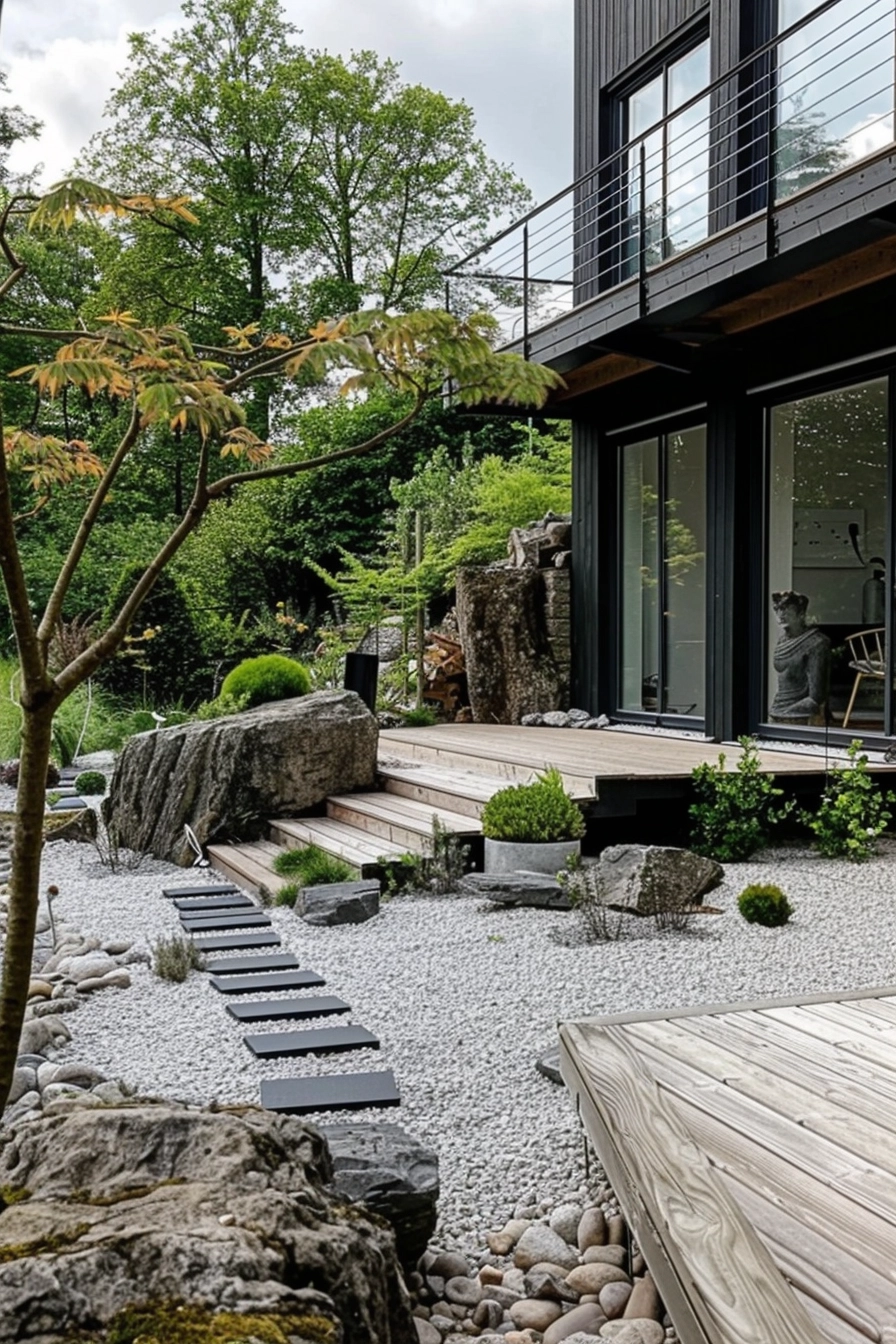Creating a zen backyard garden can bring peace and tranquility to your outdoor space. By incorporating specific elements and following certain principles, you can create a harmonious and serene retreat in your own backyard. Let’s explore some tips and ideas for designing and crafting your zen garden.
Key Takeaways:
- Designing a zen backyard garden can create a peaceful and tranquil outdoor retreat.
- Incorporate key elements such as rocks, gravel, plants, DIY water features, natural elements, and a dedicated meditation space.
- Choose a suitable space, select the right materials, and add personalized touches to create a purposeful zen garden.
- Consider incorporating water features and carefully select plants that add natural beauty to your garden.
- You can design a zen garden on a budget by utilizing existing elements and taking your time to collect meaningful items.
Key Elements in a Zen Garden
In order to create a zen garden, there are several key elements to consider. These elements will help you achieve a harmonious and tranquil space where you can find peace and relaxation.

Rocks and Stones
Rocks and stones play a crucial role in a zen garden, symbolizing natural elements like mountains. They provide a sense of stability and grounding, adding a visual anchor to the space. Arrange the rocks and stones strategically to create a sense of balance and harmony.
Gravel or Sand
Gravel or sand is used to create patterns in a zen garden, symbolizing water or movement. Rake the gravel or sand to create flowing lines or concentric circles, enhancing the visual appeal and creating a sense of calmness.
Plants
Incorporating plants in a zen garden adds life and color to the space. Choose low-cost plants such as moss, ornamental grasses, and bamboo. These plants not only provide visual appeal but also hold symbolic meanings in zen philosophy. They represent growth, flexibility, and resilience.
DIY Water Features
Water features are a popular addition to zen gardens as they bring a soothing and meditative element to the space. Consider creating your own DIY water feature using a small pond, fountain, or even a simple water basin. The sound of water can help mask outside noises and promote a sense of tranquility.
Natural Elements
Adding natural elements to your zen garden can create a unique and personalized touch. Look for driftwood, seashells, or pinecones to integrate into the design. These elements can add a sense of connectedness to nature and evoke a calming effect.
Meditation Space
Designating a space for meditation or reflection is essential in a zen garden. Create a designated area with cushions, dried flower petals, fabric, lanterns, and small sculptures. This space will serve as a focal point for relaxation and inner peace.
By incorporating these key elements, you can create a zen garden that embodies tranquility and promotes a sense of harmony within your outdoor space.

Tips for Designing a Zen Garden
When designing your zen garden, it’s important to carefully consider the space you have available. Choose a location that is easily accessible and can be enjoyed regularly. Take into account the amount of sunlight the area receives, as this will impact your plant selection. Opt for plants that thrive in the available light conditions, whether that be full sun or shade.
To create a structured and serene environment, utilize materials like river stones, flat stones, rocks, pebbles, and sand. Arrange these elements strategically, focusing on creating a harmonious balance. Consider incorporating personalized touches, such as wind chimes or Buddha statues, to infuse your garden with meaningful symbolism.
Water features are a popular addition to zen gardens, as they provide a soothing and meditative sound. Consider incorporating a small fountain, pond, or even a simple bamboo water spout. Carefully select your plants to add natural beauty to the space. Cherry trees and Japanese maples are excellent choices, as they bring vibrant colors and a sense of tranquility.
Designing a zen garden doesn’t have to be expensive. You can save money by utilizing existing elements in your yard, such as rocks or plants that can be repurposed. Take your time collecting meaningful items and gradually build your garden. By following these tips, you can create a purposeful and serene zen garden that brings peace and tranquility to your outdoor space.


